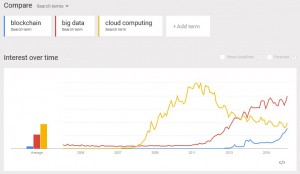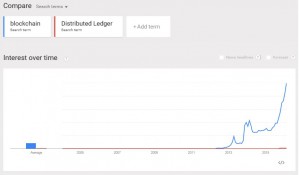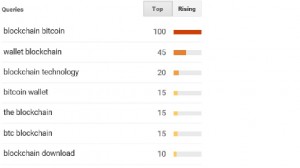There’s a certain inevitability that when regulators take a sufficient interest in something then they’ll attempt to regulate it “just in case”. This could turn out to be the case given the fervour of overt interest being expressed by regulators around the World to “better understand the technology”.
The US Financial Stability Oversight Council (FOSC) 2016 report[1] sets the scene with a statement that “Like most new technologies, distributed ledger systems also pose certain risks and uncertainties which market participants and financial regulators will need to monitor. Market participants have limited experience working with distributed ledger systems, and it is possible that operational vulnerabilities associated with such systems may not become apparent until they are deployed at scale”
In early 2016, the Global Financial Stability Board (FSB), membership of which comprises central bank governors and financial regulators from the world’s major economies announced that it wanted to better understand blockchain[2]. The 2017 plan explicitly calls out Fintech issues[3], including “issues for authorities in the use of distributed ledger technology”.
Later in March 2016 the US Commodity Futures Trading Commission (CFTC) Commissioner J Christopher Giancarlo observed[4] (in a personal capacity at a blockchain conference) that “Much like the Internet, U.S. and foreign regulators must coordinate to create a principles-based approach for DLT oversight in order to provide the flexibility, certainty and harmonization necessary for this technology to flourish”.
At the end of March 2016, the US Securities and Exchange Commission (SEC) included a statement[5] that “One key regulatory issue is whether blockchain applications require registration under existing Commission regulatory regimes, such as those for transfer agents or clearing agencies”.
At the beginning of June 2016 the European Securities and Markets Authority (ESMA) published a discussion paper[6] “The Distributed Ledger Technology Applied to Securities Markets”. As with other regulators, its target audience was “This discussion paper is meant to be read by technologists such as Fintech companies and any financial institutions interested in the use of the Distributed Ledger Technology (DLT) in securities markets such as banks, central counterparties, central securities depositaries, custodians, asset managers, investors, etc”. ESMA has gone on to produce a number of other papers, reports, etc. which can be found at https://www.esma.europa.eu/search/site/ledger
The UK Financial Conduct Authority (FCA) has been able to be on the inside track with the emerging opportunities that Blockchain/DLT thanks to the number of blockchain projects being undertaken under the umbrella of the Project Innovate regulatory Sandbox programme. Of the first cohort of 18 participants selected in 2016, nine were blockchain/DLT based[7]. The second cohort, at the time of writing, is yet to be announced but is expected to include further blockchain-based projects.
The US State of Illinois formed a consortium of state and county agencies in November 2016 known as the Illinois Blockchain Initiative. It soon after issued a Request For Information[8] (RFI) “Distributed Ledger and Blockchain Applications in the Public Sector” from which responses were collated in January 2017 and a series of presentations were scheduled for February and March.
Also in November 2016, the Monetary Authority of Singapore (MAS) announced[9] that it was partnering with R3 on a Proof of Concept (PoC) to conduct inter-bank payments using blockchain technology.
In December 2016, a speech by Yves Mersch, Member of the Executive Board of the European Central Bank (ECB), at the 22nd Handelsblatt Annual Conference on Banking Technology described[10] what the role and relevance of the ECB was in relation to Distributed Ledger Technology. He included the observation that “Whether or not we will overestimate distributed ledger technology (DLT) in the short run and underestimate it in the long run remains to be seen. However, I am sure we can agree that DLT currently stands in the limelight”. There was also an announcement[11] that the ECB and Bank of Japan were embarking on a research project around DLT.
At the end of 2016, the US Federal Reserve published[12] a paper “Distributed Ledger Technology in payments, clearing and settlement”. This was produced by teams from the Federal Reserve Board as well as the Federal Reserve Banks of New York and Chicago and took input from over 30 public and private sector respondents.
Getting 2017 off to a good start, the US Financial Industry Regulatory Authority (FINRA) issued a report[13] “Distributed Ledger Technology: Implications of Blockchain for the Securities Industry”. This was very much in line with the various other papers that regulators have produced in order to elicit views – “This paper is intended to be an initial contribution to an ongoing dialogue with market participants about the use of DLT in the securities industry. Accordingly, FINRA is requesting comments from all interested parties regarding all of the areas covered by this paper”.
There’s an argument that regulators can’t properly regulate something that they themselves are part of and so it’s interesting to see that in In February 2017, Hong Kong’s Securities and Futures Commission announced[14] that it had joined R3CEV.
The February 2017, International Organisation of Securities Commissions (IOSCO) report[15] on FinTech included an entire chapter on “Distributed Ledger Technologies (DLT), including application of the blockchain technology and shared ledgers to the securities markets”.
At the beginning of March 2017, the Monetary Authority of Singapore (MAS) and the Abu Dhabi Global Market (ADGM) reached agreement[16] to provide reciprocal insight into the legislative landscape in which “Both Authorities will also undertake and explore joint innovation projects on the application of key technologies including digital and mobile payments, blockchain and distributed ledgers, big data, flexible platforms (API), and other new technologies.”.
In March 2017 the Australian Securities & Investments Commission (ASIC) published “Information Sheet 219” about evaluating Distributed Ledger Technology[17]. Compared to other regulators, this publication was somewhat less nuanced and gave somewhat clearer guidance around DLT and its use.
Later in March 2017 the US Illinois Department of Financial and Professional Regulation became the first US State regulator to become a member of the R3CEV consortia[18].
At the beginning of April 2017, the European Central Bank stated in its report[19] “Technological innovation: Distributed Ledger Technology (DLT) – challenges and opportunities for financial market infrastructures” that blockchain “lacked the necessary maturity to be part of its market architecture”.
The UK FCA, akin to the Illinois initiative, launched a discussion paper in April, 2017 “DP17/3: Discussion Paper on distributed ledger technology”[20] to elicit comments about the future of DLT and what the associated regulatory requirements may be.
April 2017 proved to be a busy month of announcements and a speech[21] by Mark Carney, Governor of the Bank of England “Building the Infrastructure to Realise FinTech’s Promise” was very supportive of Distributed Ledger Technology, with a point made that “New technologies could transform wholesale payments, clearing and settlement. In particular, distributed ledger technology could yield significant gains in the accuracy, efficiency and security of such processes, saving tens of billions of pounds of bank capital and significantly improving the resilience of the system”.
Later in April 2017, the European Commission has announced[22] that it is funding an observatory and forum to help it understand what role authorities should play in supporting (or controlling) the adoption of the technology.
Around the same time in April 2017, the Malta Government announced[23] that they were developing a National Blockchain Strategy.
So, will the Regulators demand that blockchain is regulated? There’s some really interesting dynamics here as regulators don’t usually regulate a technology itself but do choose to regulate its use. As an example I often use, regulators don’t control the use of Microsoft Excel or Oracle Databases but they do have oversight of the processes and procedures that use the technologies. It’s possible therefore that regulators may play by the same rules , or that they may attempt a land grab and state that blockchain, DLT and Smart Contracts introduce systemic risks. If the latter occurs then we’re likely to see an increase in regulatory arbitrage whereby some organisations may choose to (re-) domicile their technology platform or business operation in order to benefit from the most favourable regulatory regime.
Gary Nuttall
Managing Director, Distlytics Ltd
[1] https://www.treasury.gov/initiatives/fsoc/studies-reports/Documents/FSOC%202016%20Annual%20Report.pdf
[2] http://www.coindesk.com/financial-stability-board-seeking-better-understanding-of-blockchain-technology/
[3] http://www.fsb.org/2016/11/financial-stability-board-agrees-2017-workplan/
[4] http://www.cftc.gov/PressRoom/SpeechesTestimony/opagiancarlo-13
[5] https://www.sec.gov/news/speech/chair-white-silicon-valley-initiative-3-31-16.html
[6] https://www.esma.europa.eu/sites/default/files/library/2016-773_dp_dlt_0.pdf
[7] https://www.fca.org.uk/news/press-releases/financial-conduct-authority-unveils-successful-sandbox-firms-second-anniversary
[8] https://www2.illinois.gov/sites/doit/Documents/BlockchainInitiative/RFI+Blockchain+and+Distributed+Ledger+Applications+in+the+Public+Sector.pdf
[9] http://www.mas.gov.sg/News-and-Publications/Media-Releases/2016/MAS-experimenting-with-Blockchain-Technology.aspx
[10] https://www.ecb.europa.eu/press/key/date/2016/html/sp161206.en.html
[11] https://www.finextra.com/newsarticle/29872/ecb-and-bank-of-japan-research-dlt-for-market-infrastructure/retail
[12] https://www.scribd.com/document/333557530/Federal-Reserve-on-Fintech
[13] http://www.finra.org/sites/default/files/FINRA_Blockchain_Report.pdf
[14] https://blogs.wsj.com/cio/2017/02/10/hong-kong-regulator-joins-r3-for-blockchain-tests/
[15] https://www.iosco.org/library/pubdocs/pdf/IOSCOPD554.pdf
[16] http://www.mas.gov.sg/News-and-Publications/Media-Releases/2017/Monetary-Authority-of-Singapore-and-Abu-Dhabi-Global-Market.aspx
[17] http://asic.gov.au/regulatory-resources/digital-transformation/evaluating-distributed-ledger-technology/
[18] http://www.r3cev.com/press/2017/3/21/illinois-becomes-first-state-level-regulator-to-join-r3-distributed-ledger-group
[19] https://www.finextra.com/newsarticle/30422/dlt-still-not-mature-enough-says-ecb
[20] https://www.fca.org.uk/publications/discussion-papers/dp17-3-discussion-paper-distributed-ledger-technology
[21] http://www.bankofengland.co.uk/publications/Documents/speeches/2017/speech974.pdf
[22] https://www.theregister.co.uk/2017/04/20/eu_plans_for_blockchain_observatory_raise_concerns_says_expert/
[23] http://www.coindesk.com/malta-government-blockchain-strategy/






